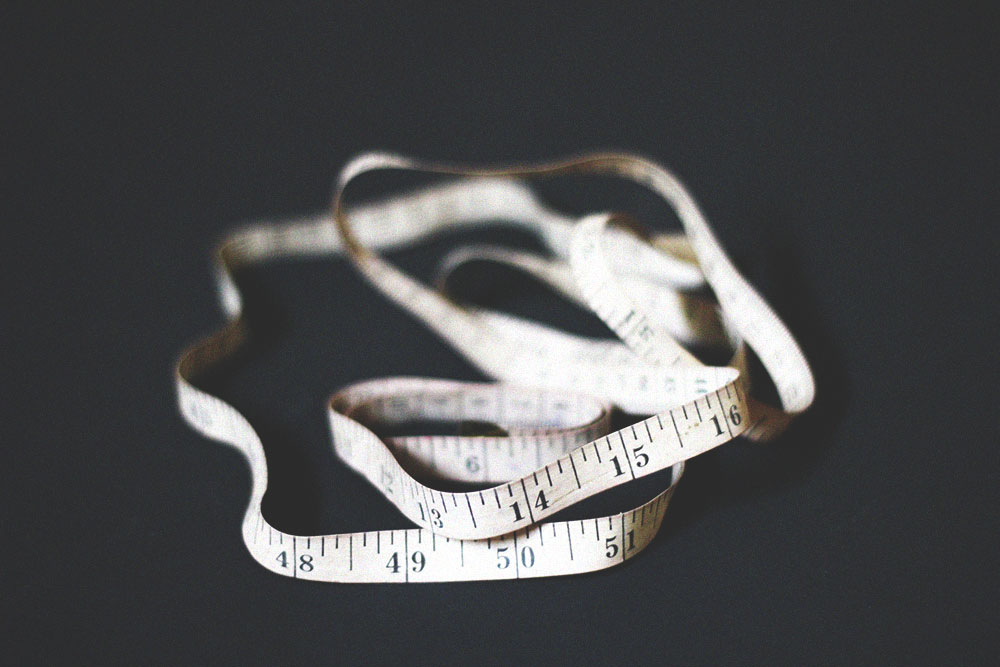There’s a false notion that a single number dominates the picture of your health. Get to know why your BMI is not all that matters.
BY: ROBYN NOHLING, FNP-BC, RD
Weight in grams divided by height squared in meters = BMI.
For years, BMI has been a widely used traditional “indicator” of good health. It’s a parameter to determine risk factors for a variety of chronic diseases that health professionals are taught in school.
Primary care physicians often use BMI as one quick measure of “good health.” Dietitians use it to determine whether an individual is underweight, a healthy weight, or overweight. Often times, even personal trainers encourage people to achieve below a certain BMI, no matter the cost. But does BMI really matter?
Without the context of other important measurements, BMI means absolutely nothing.
BMI doesn’t take into account waist size, muscle mass, or bone size. In essence, it makes no physiological sense. Bone is denser than muscle and two times as dense as fat. Therefore, a person with strong bones, good muscle tone and healthy body fat will naturally have a higher BMI compared to someone with little muscle tone and thinner bones. And despite being deemed “healthy” by BMI standards, those with weaker muscles and bones are actually not healthy.
This is exactly why athletes or even physically-fit people find themselves with a higher BMI, but are in good health based on other parameters – waist size, body fat, strength, lab values. BMI is far more unreliable when used alone.
Health professionals who look at BMI as one of the primary indicator of “good health” simply aren’t fully assessing a patient.
This focused view of health may lead to overlooking other health concerns, and they may be putting a patient at risk by initiating the need to prescribe weight loss diets to achieve a certain BMI when in actuality, chronic yo-yo dieting may be doing more harm than good.
There is room for false education.
There are so many other factors that determine the quality of our health better than BMI and even weight. Lab biomarkers, waist circumference, muscle mass all provide a more complete picture of health. Additionally, thyroid function, energy and nutrient intake, as well as sleep patterns and stress levels create a more accurate depiction of one’s personal health environment. Notice that BMI plays no part in that equation.
Today, I encourage you to stop living this false narrative that BMI dictates our measurement of health. Instead, learn to better understand and appreciate the body you were given from the very beginning, and break free from the need for weight-loss diets and restrictions that do more harm than good.
Because this life is way too short to worry about fitting into an arbitrary numeric range.
Adapted from the original article.
Robyn Nohling, FNP-BC, RD is a Registered Dietitian and Family Nurse Practitioner who believes that eating cupcakes and kale are both equally healthy to the body and mind. With a passion for women’s hormonal health and nutrition, Robyn cuts through the irrational noise of diet fads and unrealistic beauty expectations to help others find joy in food as it’s meant to be celebrated. Learn more about Robyn at The Real Life RD.

